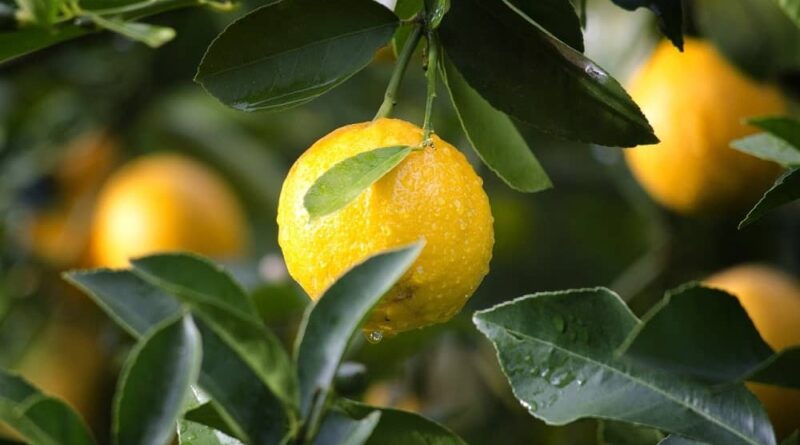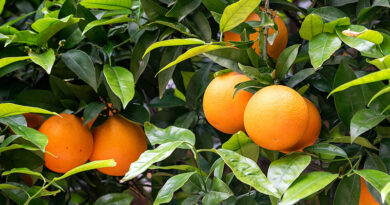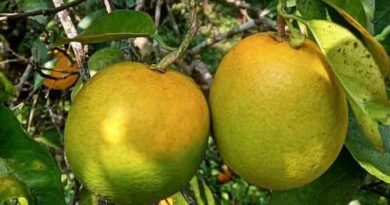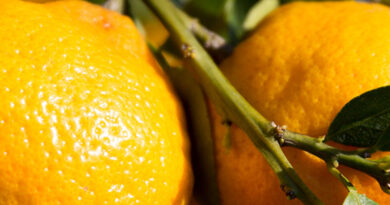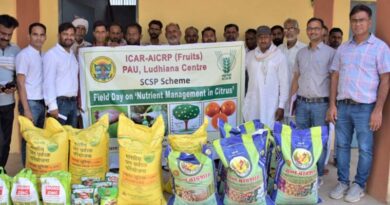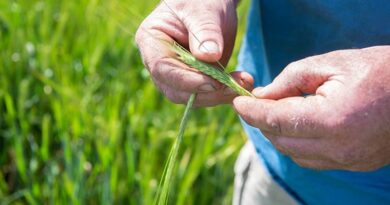CABI shares expertise on how to tackle citrus greening disease in the Caribbean
25 November 2020, UK: CABI scientists from Brazil, Costa Rica and Trinidad have teamed up with experts from Fundecitrus and the University of São Paulo-ESALQ to share their expertise on the debilitating citrus greening disease which threatens the success of citrus production – including oranges, grapefruit, lemons and limes – in the Caribbean.
Also Read: ASSOCHAM hosts an interaction on Invasive and Migratory Pest Management with the stakeholders
Dr Yelitza Colmenarez and Naitram Ramnanan took part in a series of webinars aimed at strengthening the capacity for the region to manage the citrus greening disease which is caused by a bacterium vectored by the citrus psyllid.
Once a tree bearing fruit is infected, the whole tree declines resulting in death. In São Paulo state alone, 20% of the 41.3 million trees become infected annually – meaning the loss of 44 million boxes of fruit (FUNDECITRUS, 2020).
Dr Colmenarez, Director CABI Brazil Centre and Regional Coordinator for the Plantwise Programme – Latin America and the Caribbean, said, “The disease and its vector are now confirmed in most countries of the Caribbean. From past experience it is only a matter of time that it will affect all citrus producing countries in the Caribbean.”
“Since the introduction of citrus greening in 2005 to Brazil, a lot of research has been conducted on an integrated approach to managing the disease from the use of safe pesticide to manage the vector to the use of biocontrol agents to reduce the levels of the vector and consequently the number of trees infected.”
Internationally, six out of every ten glasses of citrus juice drunk originate in Brazil. Citrus is important to the Brazilian economy accounting for over 200,000 jobs and is the seventh most important farm produce to be exported.
Mr Ramnanan, IAS Coordinator and Regional Representative – Caribbean and Central America, said, “Over ten thousand citrus farmers work with Fundecitrus to conduct research to determine the best management strategies for this debilitating disease. Their success has led to the dominance of Brazilian exports in both fresh citrus fruit and juice particularly in the European market.
“They have developed an effective vector alert programme that identifies when chemical control should be applied and have effectively utilized fungal agents called biopesticides to control the vector as well as other predator insects with great success. They have developed rapid assessments to detect and remove infected trees.”
Between 2010 and 2015, almost 56 million infected trees were removed and utilized by restaurants as fuel. Most importantly, farmers have found that they must remove infected citrus plants outside of their farms and apply biopesticides and natural enemies to control the vector – again outside of the farms – to reduce infection levels on the farm.
Dr Colmenarez added, “In contrast the Caribbean experience is more varied. Dominica was once a vibrant exporter of both fresh limes and lime juice. This is now virtually non-existent due the disease. However, they have had some success with biological control and the industry is rebounding.”
Mr Ramnanan also confirmed that in Jamaica an active programme of eradication of infected trees and replacing with disease-free trees is also in place.
“The disease was confirmed in Trinidad in 2017. Since then the country destroyed all the citrus seedlings at the government nurseries as well as stock plants in the field form which budwood was selected. Disease-free material was imported from Florida and the country is only now restarting the production of planting materials for distribution to farmers,” he said.
Some of the Caribbean participants expressed the view that Brazil is a large country with large mechanized citrus farms which makes it easier to achieve success. The Brazilian experts suggested that farmers in the Caribbean need to be better organized to operate as one or more large farms per country to succeed.
Some suggestions for follow up include organizing additional sessions for the countries in the region to share more in-depth experiences and continue the dialogue with the Brazilian experts for further support. It’s also highlighted the importance of joining efforts working in a regional level with key institutions such as FAO, CAHFSA, CARDI, CPHDF, USDA, IICA, and Ministry of Agricultures from each Caribbean country.

